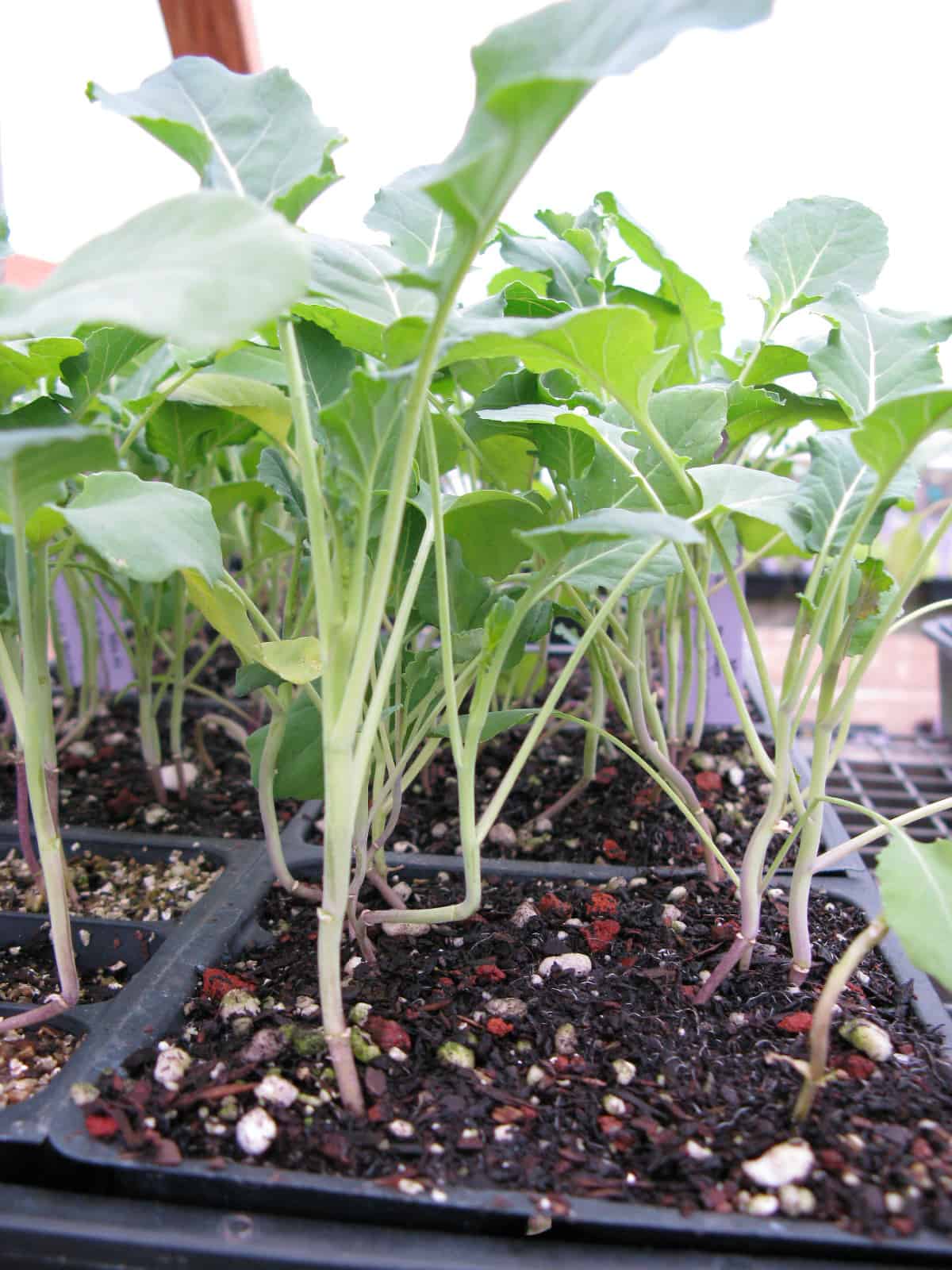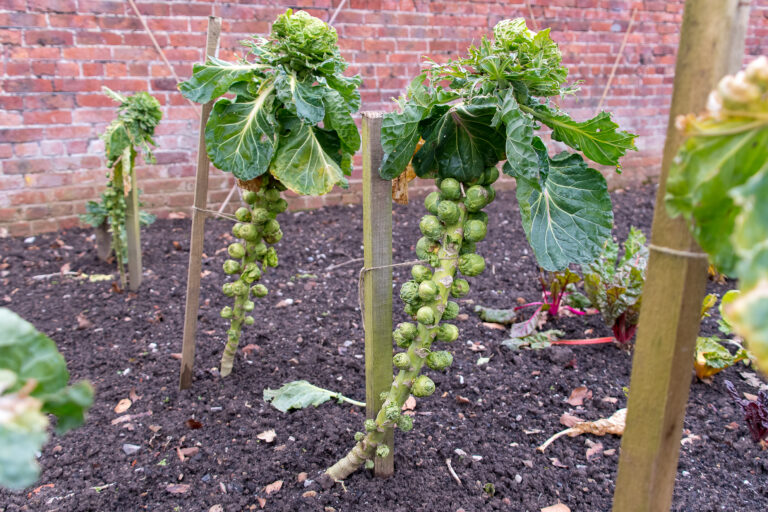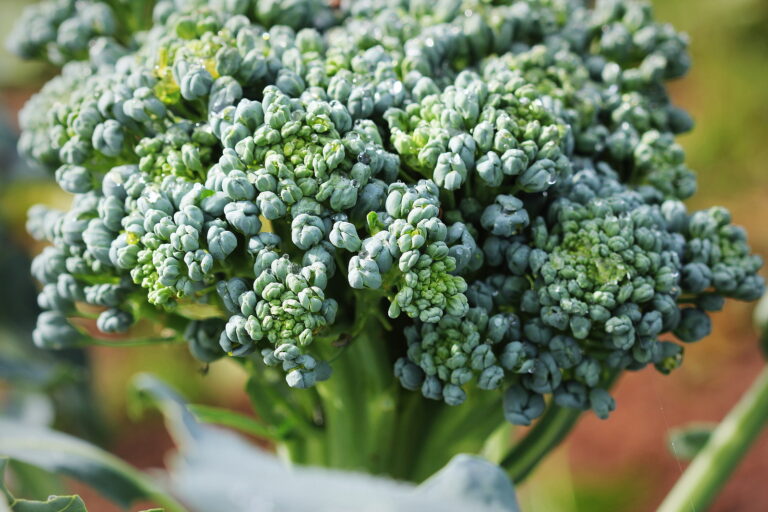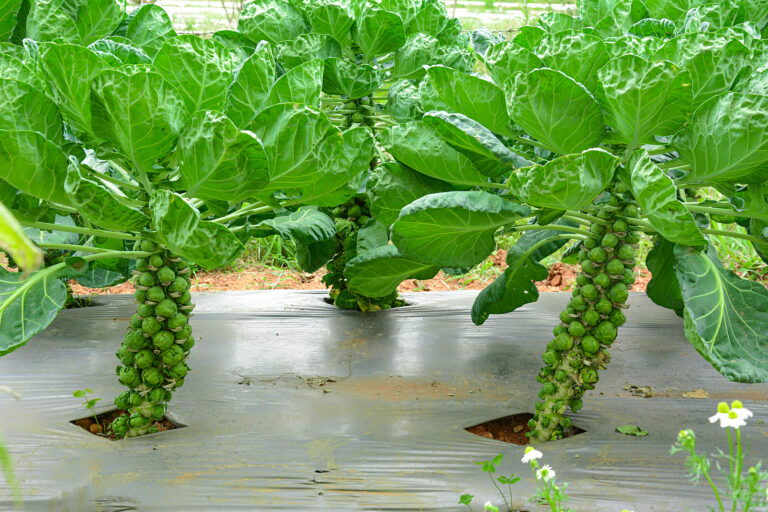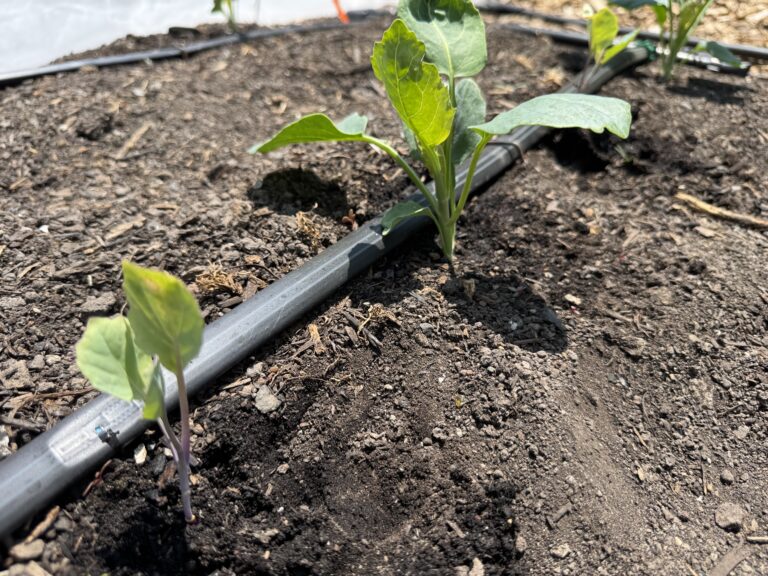Broccoli Seed Starting Tips
Broccoli is a cool-season annual commonly treated as a two-season crop with spring and late summer planting. Broccoli seedlings are usually transplanted into the garden after being started indoors. Seeds are sown indoors or in a cold frame 5 to 6 weeks before they are set in the garden.
In spring, give broccoli an early start so that greenheads can form before the hot weather arrives. Broccoli seedlings can be set in the garden up to a month before your last expected frost. Broccoli can withstand frost down to about 25°F (-4°C). It grows best at 60°F to 65°F (16°-18°C).
Broccoli is adapted to widely different soils as long as they are fertile, with good texture, and moist. Adding aged compost to the planting bed and turning it under is a good way to prepare a planting bed for broccoli.
Side-dress broccoli with aged compost and a slow-release organic fertilizer at planting time will meet broccoli’s initial nutrient needs. Continue to apply these lightly around the plants at 3-week intervals.
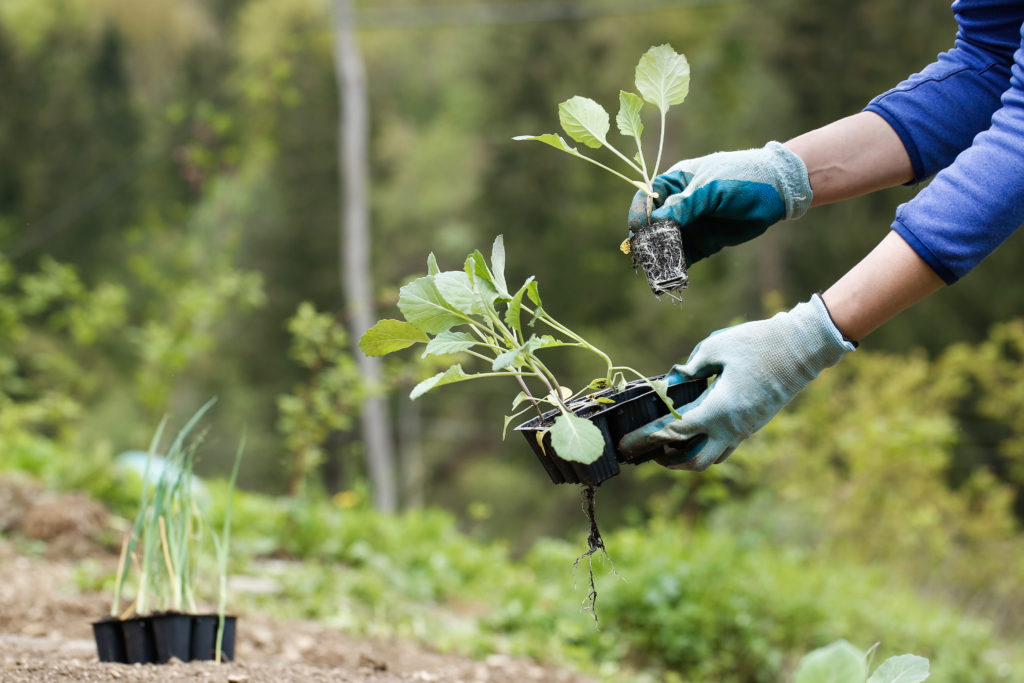
Broccoli is a cool-season crop. It thrives in temperatures between 60° and 70°F (15-21°C). Mature plants can withstand cold temperatures down to 25°F (-4°).
Broccoli can be temperamental; if you plant too early plants may produce only small heads—called “buttons.” And if you plant too late—and plants mature in very warm or hot weather—heads may not form at all and plants may simply flower and go to seed.
Time your spring planting so that broccoli will come to harvest before uniformly hot weather arrives. Time late spring or summer planting so that plants mature in cool autumn temperatures.
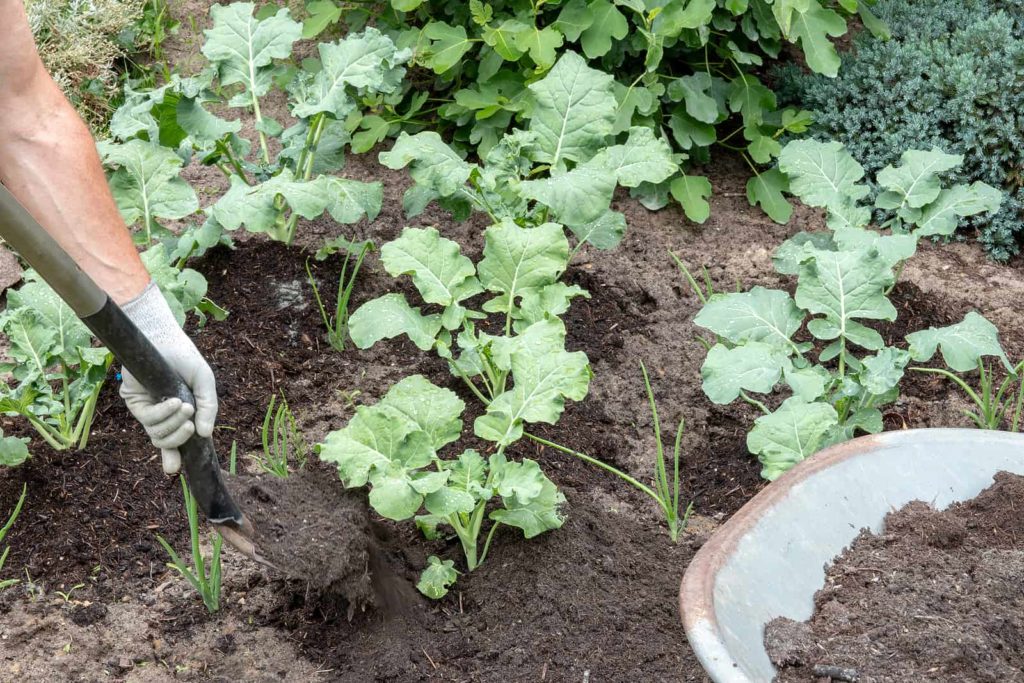
Broccoli planting details
- Sowing depth: ¼ inch (.6 cm)
- Space between plants after thinning: 18-24 inches (45-61cm); broccoli plants spaced closer will have smaller heads.
- Days to sprout: 10; start seed indoors 4 to 6 weeks before setting transplants in the garden
- Days to harvest: 60-80
- Storage period: 1-2 weeks
- Seeds per 100-row feet: 1 packet
- Yield per 100-row feet: 50 pounds (45 kilos)
- Suggested varieties: Green Comet, Calabrese, Waltham 29
- Notes: Make an early to mid-summer directly in the garden if you want new plants for fall eating. Failure to produce can be caused by hot weather, lack of water, and low soil calcium.

Broccoli sowing and planting tips
- Start broccoli from seed or transplants.
- Seed is viable for 3 years.
- For spring crops start seeds indoors 7 to 9 weeks before the average last frost date. For a fall crop, start seed indoors 10 to 12 weeks before the first fall frost.
- Start seeds in individual pots
- Sow seed ¼ to ½ (6-8 mm) inches deep in the seed-starting mix.
- Keep the mix moist but not wet.
- Seeds should germinate in 5 to 10 days at an optimal temperature of 77°F (25°C) or thereabouts.
- Transplant seedlings into the garden when they are 4 to 6 inches (10-15 cm) tall with 2- to 4-leaves.
- Grow broccoli in full sun for the best yield, but broccoli will tolerate partial shade.
- Add 3- to 4- inches of compost and well-aged manure into the planting bed, before transplanting; broccoli needs friable, moisture-holding soil.
- Avoid planting where cabbage family crops have grown recently.
- Space plants 18 to 24 inches (45-60 cm) apart; plants spaced 10 to 12 inches (25-30 cm) apart will yield smaller heads.
- Space rows 36 inches (.9 m) apart.
- Protect seedlings from the cold for 2 to 3 weeks after planting covering them with a cloche or plastic tunnel or cold frame.
- Fertilize with an organic fertilizer such as fish emulsion at half strength.
Interplanting: Plant with bush beans, beets, carrots, celery, chard, cucumbers, lettuce, and peas. Herbs with a strong fragrance such as dill, sage, rosemary, basil, mint, garlic, and thyme are also good companions for broccoli. The strong aroma of these herbs helps to repel pest insects that may attack broccoli.
Container Growing: Choose a container with a minimum depth of 20 inches (51 cm).
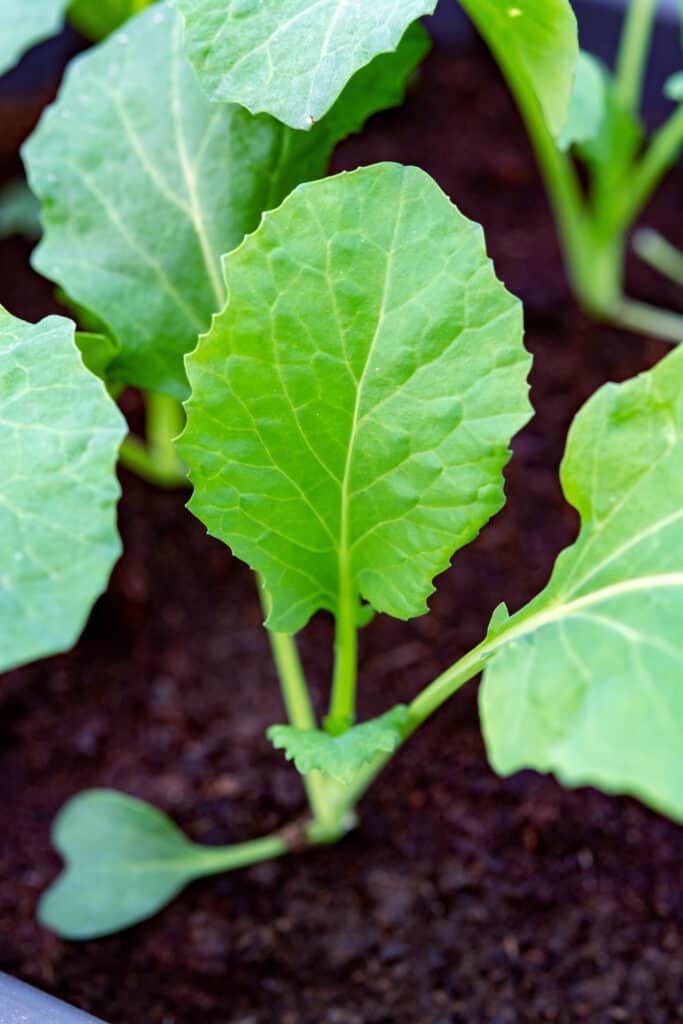
Broccoli planting calendar
Planting for spring harvest:
- 8-6 weeks before the last frost in spring: start seed indoors for transplanting to the garden late.
- 6-4 weeks before the last frost in spring: direct-sow seed in a plastic tunnel or cold frame.
- 4-3 weeks before the last frost in spring: direct-sow seed in the garden when the minimum soil temperature is 40°
Planting for fall and winter harvest:
- 17-15 weeks before the first frost in fall: start the seed of cold-tolerant varieties indoors for transplanting out at end of summer.
- 14-12 weeks before the first frost in fall: direct sow seed of cold-tolerant varieties in the garden for fall harvest.
- 12-10 weeks before the first frost in fall: transplant seedlings into the garden.
More tips at How to Grow Broccoli.
Broccoli planting dates for spring and summer harvests*
| Average date of the last frost | Planting dates |
| Jan. 30 | Jan. 1-30 |
| Feb. 8 | Jan. 1-30 |
| Feb. 18 | Jan. 15-Feb. 15 |
| Feb. 28 | Feb. 1-Mar. 1 |
| Mar. 10 | Feb. 15-Mar. 15 |
| Mar. 20 | Feb. 15-Mar. 15 |
| Mar. 30 | Mar. 1-20 |
| Apr. 10 | Mar 15-Apr. 15 |
| Apr. 20 | Mar 25-Apr. 20 |
| Apr. 30 | Apr. 1- May 1 |
| May 10 | Apr. 15-June 1 |
| May 20 | May 1-June 15 |
| May 30 | May 1-June 15 |
| June 10 | May 10-June 10 |
| June 10 | May 20-June 10 |
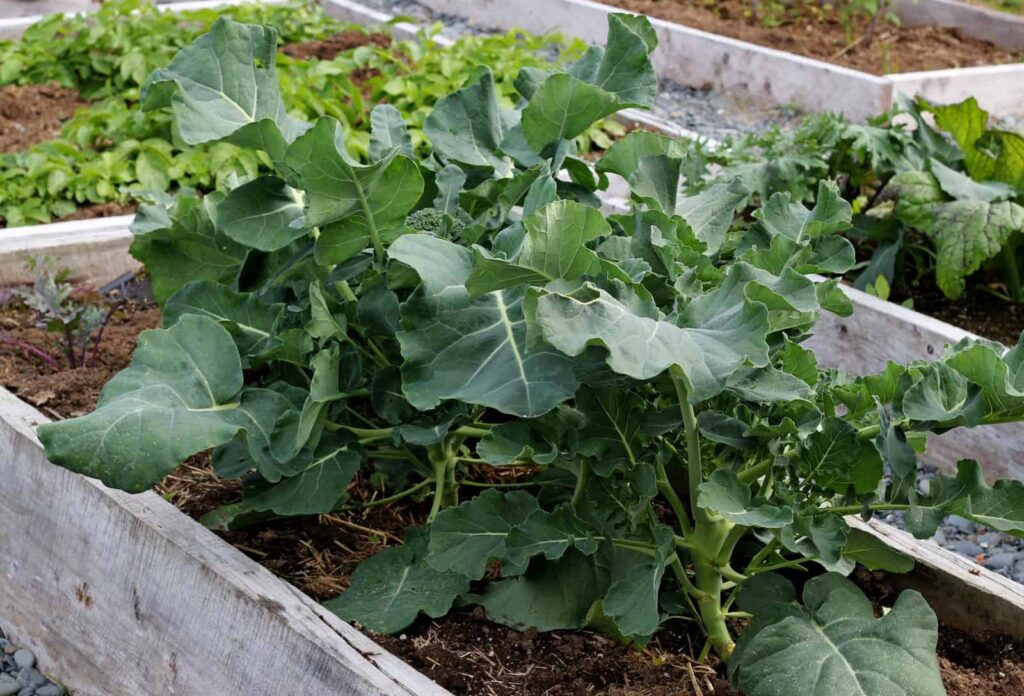
Broccoli Recommended Varieties
- ‘Green Comet’ or ‘Premium Crop’ for spring planting.
- ‘Gypsy’ is disease resistant and matures early. ‘Arcadia’ is a mid-to-late-season variety with big heads and cold tolerance.
- ‘Belstar’ grows in warm winters.
- ‘Nutribud’ is open-pollinated.
- ‘Packman’ is an early producer.
- ‘Small Miracle’ and ‘Munchkin’ are good for containers and small spaces.
- ‘Waltham 29’ is a favorite for fall harvest.
- ‘Purple Sprouting’ has small purple heads and comes to harvest in late fall.
Botanical Name: Brassica oleracea
Broccoli is a member of the Brassicacea (Cruciferae) or cabbage family.
🌱 Broccoli Learning Hub
Your complete guide to planting, growing, and enjoying homegrown broccoli.
1. Start Here: The Complete Guide
2. Planning & Planting
Getting off to a strong start.
- When to Plant Broccoli: Timing by Zone and Season
- Broccoli Seed Starting Tips
- How to Start Broccoli Seeds Indoors: Step-by-Step for Success
- Best Broccoli Varieties for Tight Heads and Long Harvests
- Succession Planting Broccoli for a Longer Harvest Window
- Best Companion Plants for Broccoli (And What to Avoid)
3. Growing & Care
Tips to nurture strong, flavorful heads.
- How to Fertilize Broccoli for Big, Tight Heads
- How to Water Broccoli: Preventing Split Heads and Bitter Taste
- How to Prune and Thin Broccoli for Better Growth
- Growing Broccoli in Hot Weather: How to Prevent Bolting
- How to Keep Broccoli from Bolting Early (And What to Do If It Does)
- Broccoli Growing Problems: Troubleshooting
- Why Are My Broccoli Heads Small or Loose? Top Growing Mistakes
4. Harvest & Storage
Get the timing right for best flavor.
- How and When to Harvest Broccoli for Peak Flavor and Yield
- How to Get a Second and Third Broccoli Harvest From One Plant
- How to Harvest and Store Broccoli
5. Kitchen & Table
Turn your harvest into meals.
6. Related Crops
Expand your brassica garden.
- Broccoli Relatives You Can Grow: Romanesco, Raab, and More
- Growing and Harvesting Broccoli Raab: A Practical Guide
- Four Ways to Cook and Serve Broccoli Raab
Broccoli articles at Harvest to Table:
How to Plant and Grow Broccoli
How to Harvest and Store Broccoli
Broccoli Growing Problems: Troubleshooting
Seven Ways to Cook and Serve Broccoli
Four Ways to Cook and Serve Broccoli Raab
Garden Planning Books at Amazon:

